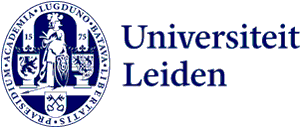
Combining high-level sports and work: ‘It makes me better at both’
She works four days a week as a project manager at LIACS and trains six days a week with the Dutch Para Climbing team. Christiane Luttikhuizen balances her role at the Faculty of Science with competing at a high level in climbing.
What exactly is your role at LIACS?
‘As a project manager, I support our researchers with their funding applications. Together with my colleagues in the Project Office, we assist them throughout the application process, from helping with text and content to budgeting and administrative tasks. The job is interesting because there’s so much going on at the same time – we currently have around fifty applications in progress, plus just as many ongoing projects.
I have a research master’s in Cognitive Neuropsychology, but combining a PhD with high-level sports doesn’t feel achievable right now. This way, I still get to be involved in the research world and contribute to the projects happening at LIACS.’
‘This way, I still get to be involved in the research world and contribute to the projects happening at LIACS.’
How do you become a European para climbing champion?
‘I have cerebral palsy – it’s a congenital brain injury that, in my case, affects the strength and mobility on the left side of my body. My impairment is mild, but in climbing, it makes a big difference. At 25, I found out that my physical disability qualifies me for certain parasports. Since then, I’ve been part of the Dutch Para Climbing team, training six days a week for about fifteen hours in total. We have team training on Wednesdays, while the other sessions are in the evenings and at weekends. Right now, I’m training a bit less since the competition season just ended. I’m still climbing nearly as much, but it’s just for fun at the moment. Soon, the training season will begin again as I prepare for next year’s competitions.’
How do you combine your work at LIACS with elite sports?
Laughing: ‘Nearly all my holiday days are used up, but I love doing it. Luckily, my employer is very flexible. Last summer, for example, I had several competitions back-to-back in Switzerland, Austria, and Italy. That would have meant travelling back and forth three times in just a few weeks. Instead, we arranged for me to work remotely for a while, so I could devote more time to both work and the competitions.’

Are there lessons you take from sports into daily life?
‘When I’m at work, I don’t think about sports, and vice versa. The combination helps me keep things in perspective, and that’s why it feels like a healthy balance. It means I can fully commit to both work and climbing.
I always feel nervous before competitions, but I know I can perform well under pressure. These are lessons I apply to my work as well. Climbing gives me a lot of confidence in that regard.’
Do you plan to keep climbing for a long time?
‘I’ll be climbing my whole life! I may stop competing eventually, though. In 2028, the sport will be in the Paralympic Games for the first time. I’m in the least impaired category, and it’s likely that this category won’t be included in the Games, so there’s a chance I won’t make the cut. But I’ll definitely keep climbing, and I plan to compete in as many events as I can for as long as possible.’
Headerfoto door: Robert Hendriksen @thatcrazydutchguy
